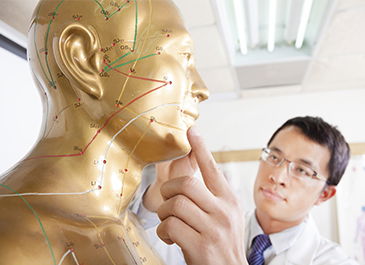The Relationship Between Emotional Stress and Illness: A Traditional Chinese Medicine Perspective
DISEASE PREVENTION & ALTERNATIVE MEDICINE

According to Traditional Chinese Medicine (TCM), Qi, or vital energy, flows like a river along pathways or meridians throughout the body. An imbalance in the flow of this energy along a particular channel will affect the body’s organ systems, leading to physical, mental and emotional symptoms. Emotions are mental stimuli that influence our body. Under normal situations they do not cause disease. However, when emotions become excessive or “built up” over long periods of time, illness may result. According to TCM, the state of the internal organs also affects our emotions. Each internal organ is associated with a characteristic positive mental energy. When affected by external stimuli, the normal flow of energy within an organ system becomes disrupted, causing changes to one’s emotional state. In this view, emotions can be the cause or the symptom of a disorder.
How acupuncture works
According to TCM the body can become healthy by balancing its flow of energy. Approximately 2000 different acupuncture points lie along the body’s channels of energy. Stimulating these points relieves the obstructions in the energy flow, allowing the body to heal. Auricular, or ear acupuncture involves stimulation of acupuncture points around the external ear. This form of acupuncture is often effective for the treatment of a variety of physiological and psychological health problems.
Acupuncture for stress management from the Western medicine point of view
Research indicates that acupuncture can be of therapeutic value in the management of stress, anxiety, depression and associated health problems. Psychological health problems like anxiety and depression are thought to be caused by low levels of the body’s mood enhancing chemicals (neurotransmitters) such as dopamine, noradrenaline, serotonin and GABA. Acupuncture has been proven to enhance the levels of these neurotransmitters. Chronic stress also causes an over stimulation of the sympathetic nervous system which leads to the excess release of stress hormones such as cortisol. Stress hormones can interfere with the secretion of the mood enhancing neurotransmitters, resulting in emotional imbalances. Acupuncture can affect sympathetic nerve impulses, reducing the negative impact of stress and restoring balance.
References:
Giovanni Maciocia, 2005. The Foundations of Chinese Medicine. Oleson, 1998. Auricular therapy Manual: Chinese and Western System of Ear Acupuncture.
Romina Taheri has a doctor diploma in TCM. She is a registered acupuncturist.

